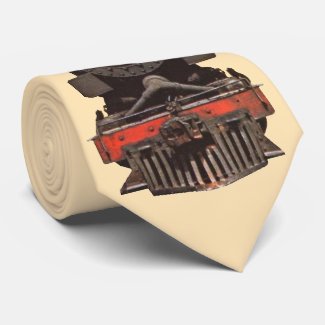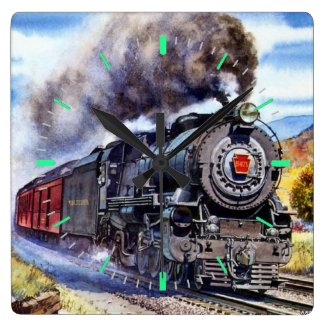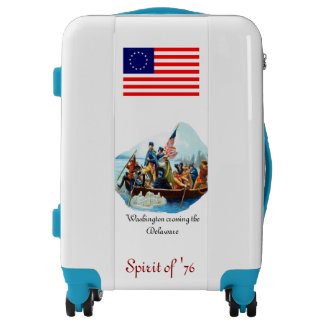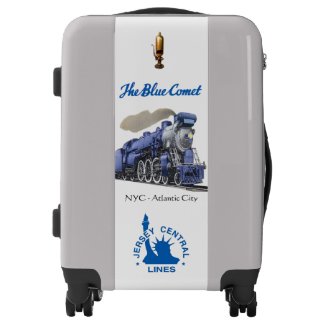The Belleville Stagecoach
We tend to think of stagecoach travel as a thing from days of the old wild West, as a way of traveling to Tombstone or getting outa Dodge. But, from just after the Revolutionary War 'til just after the Civil War, you didn't have to go any further West than Main Street in Belleville to see a stagecoach in daily use. Service began shortly after the first bridge was built across the Passaic at Belleville in 1790 and continued 'til 1865 when railroads replaced the coaches for the trip to New York.
The coach of choice was universal, no matter if it was running on the Belleville Pike 'cross the meadowlands or on the Santa Fe Trail 'cross the desert. It was the New Hampshire-built Concord 9-passenger stagecoach. Perhaps not as comfortable as a DeCamp bus, but a lot more exciting. This 9-passenger coach generally carried 21 passengers. Hmm ... that may need some explaining. Inside, there were two facing bench seats seating 3 passengers each and a fold-down jump seat for 3 more. O.k., that's 9. But then there was the roof. When Wells Fargo used these coaches for hauling freight, the top was loaded with goods. However, on commuter runs, there were seats on the roof. 3 rows of benches each holding 3 more passengers plus another seat mounted on curved iron bars that trailed behind the roof that could "safely" hold 2 more. Since a "shotgun" rider was generally not needed between Belleville and New York, another passenger would sit next to the driver. If it was any consolation, every seat was nicely upholstered and thickly padded. Such luxury ! ... and it must have been so much fun to ride in that back seat trailing behind the roof. You couldn't have that much fun at an amusement park ! On arrival in Belleville, those passengers who had not suffered a ruptured spleen, could have dinner at Mr. William's hotel.
A stagecoach driver had to be a master horseman. He controlled a team of four horses with multiple strands of reigns arranged such that he could control each horse individually or all together with his left hand so that his right hand was free to manage the friction brake lever, whip or bugle as circumstances may require. And, of course, there were all those cranky passengers. Some say managing the horses was the easy part.
Over the years, there were a succession of owners of the stage line. Joseph Sandford started the line. Later, John Dow and John Williams were proprietors, then John Williams and Jacob Robinson. They, in turn were followed by a Mr. Tuey who sold out to T .P. Seaman. In later years, a Mr. John Grice, Thomas Farrand and a Mr. Lewis were among the various owners.
One of the more interesting stories about the owners was that of John Dow who had purchased a slave, Jake, to serve as a driver. Slave ownership was frowned upon in these parts, and examples of it are exceedingly rare in our history. But, sometimes the only way a slave could be freed was to buy him. The problem was that money had real value in those days and did not flow freely, but arrangements could be made. When Mr. Dow bought Jake, he informed him of the purchase price, telling him he would assign a value in wages to the work Jake performed. When Jake had worked long enough to pay back his purchase price, he would be set free. Jake was a faithful worker during those days and Mr. Dow was an honorable man who gave Jake his freedom as promised. Beyond that, John Dow sold to Jake his own interest in the business. Thus Jake went from slave worker to business partner in the Stagecoach Line of John Williams and Jacob Robinson.
Some of the first stagecoach robberies in our countries history occurred within our precincts. From a past town historian, Richard Shafter, we have this -
In the fall of 1812 Mynheer Van Der Planck, Holland’s minister to the United States was robbed within the boundaries of Belleville. His coach-and-six had lumbered along dark and spook-ridden Gully Road when suddenly there was a shout. Several rough-looking men jumped from the shadows, pulled the driver from his seat, invited the nervous minister into the roadway, and forced him to divest himself of his moneys and valuables with which he seems to have been rather well provided.
The night swallowed the ill-doers again without a trace, leaving the bereaved Mynheer in the middle of the road, waving his ringless fingers, stamping on his empty money bags and fuming at this insult to his august person. But his anger could not recover the loot. Nor did the efforts of the Belleville and Bloomfield authorities. Mynheer Van der Planck left Belleville disconsolate, vowing never to return.
This robbery, which narrowly escaped having international repercussions, was the second to have occurred on Gully Road. The first took place in 1793, but because the persons involved were not especially distinguished nothing but the bare fact is to be found on the records.
The two photos below are not from the Belleville collection, however, they are presented here to give the reader the look and feel of the stagecoach age. The first is a beautifully restored example of a Concord 9-passenger coach rigged for use as a freight carrier by Wells Fargo. The second is an image of a fully loaded commuter coach.


==>
Here, for your consideration, is a link to a collection of books by one of our regions most talented writers, Mr. Anthony Buccino, you may want to add a few of these to your Summer reading list.
==>
Additional summer reading can be found here -
Timeless Tales of Adventure from AbeBooks
* * *























<< Home